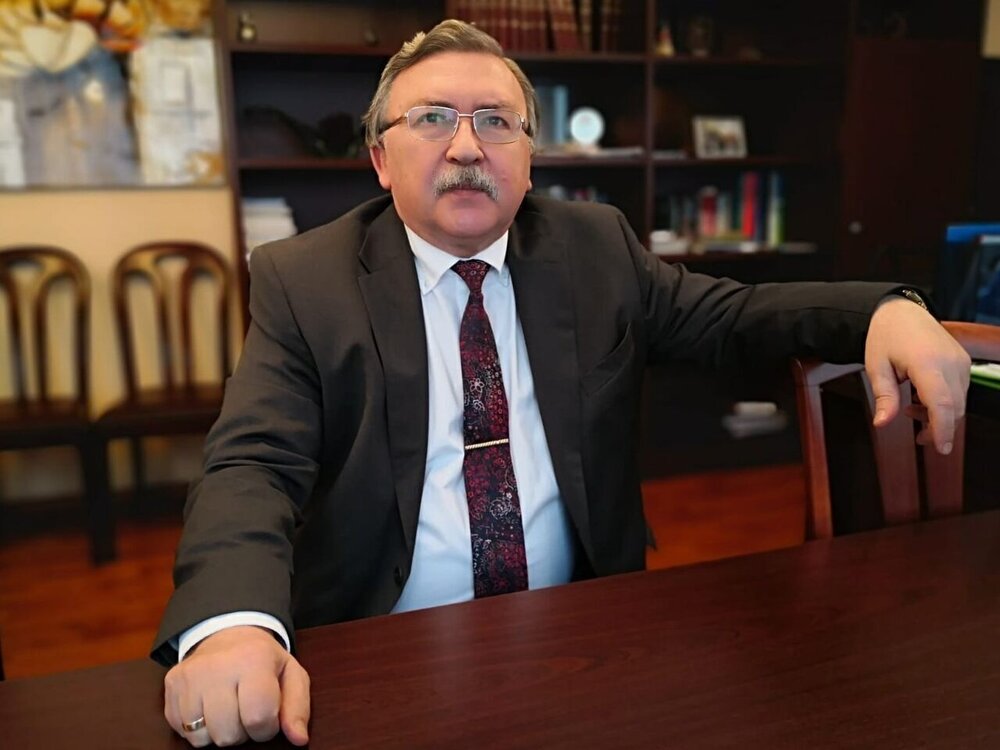IAEA resolution against Iran ‘only makes things more complicated’: Ulyanov

TEHRAN - On June 19, the IAEA Board of Governors passed a resolution critical of Iran, a move that Mikhail Ulyanov, Russia's permanent representative to the Vienna-based international organizations, says “only makes things more complicated”.
Russian and China voted against the resolution. Some other countries like South Africa, the Republic of Azerbaijan, Pakistan, India, Thailand, Niger, Niger and Mongolia abstained to vote.
"The Board of Governors should not have been involved in this dialogue by the Director-General in the first place. The consequences of this resolution could be directly opposite to the declared intentions," Ulyanov asserts. "Russia voted against (IAEA resolution). The bottom line is that the mere fact of adopting any kind of resolution on Iran would not have provided a positive result. On the contrary, it only makes things more complicated," Ulyanov tells the Tehran Times in an exclusive interview.
The resolution was submitted to the board by the European troika (the United Kingdom, France, and Germany). It calls on Tehran to provide IAEA inspectors access to two sites in Iran in order to verify possible traces of unauthorized and undeclared nuclear material and nuclear activity.
Iran said the European trio drafted the resolution under pressure from Israel, a fierce opponent of the 2015 nuclear deal, and the Donald Trump administration.
Abbas Mousavi, the spokesperson for the Iranian Ministry of Foreign Affairs, dismissed the resolution as unconstructive and strongly condemned the measure.
"While the Islamic Republic of Iran has been working at the highest level of cooperation with the Agency (IAEA), the resolution issued by the Board of Governors is a totally unconstructive and disappointing measure," said Mousavi.
Ulyanov says, "Resolution was prompted by the fact that Iran had difficulties in providing access to the IAEA inspectors to two locations where nuclear activities could have taken place about 20 years ago."
In the interview, the Russian diplomat says, "The IAEA Director-General reported this issue to the Board of Governors in March and in June. In reaction, the E3 presented their elements of a draft resolution on Iran, which were awful and could have had serious and long-standing negative impacts on the future of IAEA's cooperation with Tehran."
When the resolution was adopted, Russia and China, while stressing the need for Tehran and the IAEA to settle the issue, said the resolution could be counterproductive.
"On the Russian part, we voiced those sentiments with our European colleagues and provided them with substantial comments to their draft. Certain vital ideas were taken on Board," notes Ulyanov.
"As a result, the final text of the resolution is not confrontational or insulting to Iran. It simply calls on Iran to cooperate with the IAEA in accordance with the Additional Protocol, and provide access to locations specified by the Agency."In response to a question regarding his evaluation of the resolution's content, Ulyanov says, "As a result, the final text of the resolution is not confrontational or insulting to Iran. It simply calls on Iran to cooperate with the IAEA in accordance with the Additional Protocol, and provide access to locations specified by the Agency."
In a tweet on July 5, Ulyanov had called the European troika and Iran for "thinking together how to preserve the nuclear deal which is in very bad shape." At the time, he also noted "E3 and Iran try to launch from different perspectives Dispute Resolution Mechanism is not a good idea."
In his interview with the Tehran Times, the Russian diplomat says, "We are of the view that the professional dialogue and cooperation between Iran and the Agency should continue in accordance with standard practices, and taking into account the concerns of both parties."
On June 20, he had tweeted, "If you want to know why Russia voted against IAEA Board of Governors resolution on Iran …. We do believe that reaction of the Board to the current problems in the form of resolution can be counterproductive.”
In his interview with the Tehran Times, the top Russian diplomat to the IAEA says the board “should not have been involved in this dialogue” raised by IAEA chief Rafael Grossi.
"The Board of Governors should not have been involved in this dialogue by the Director-General in the first place. The consequences of this resolution could be directly opposite to the declared intentions," Ulyanov asserts.
Leave a Comment